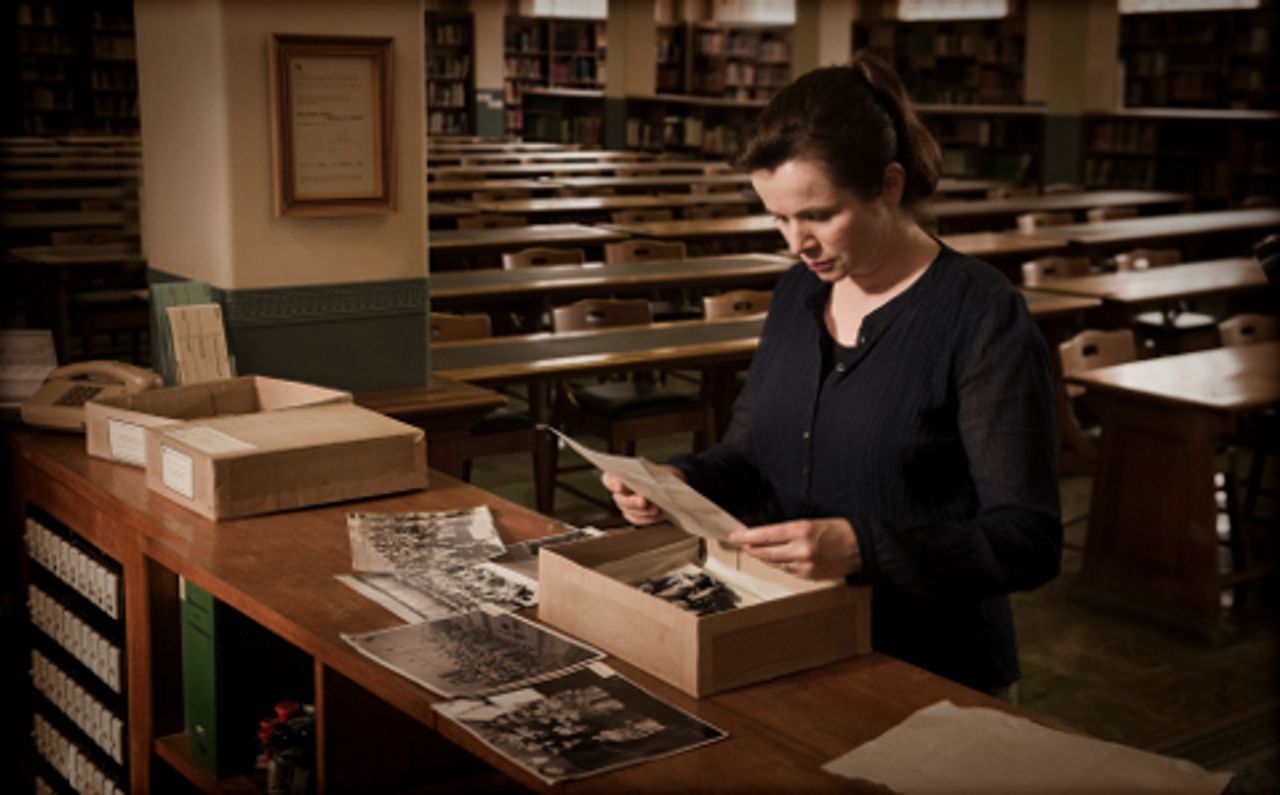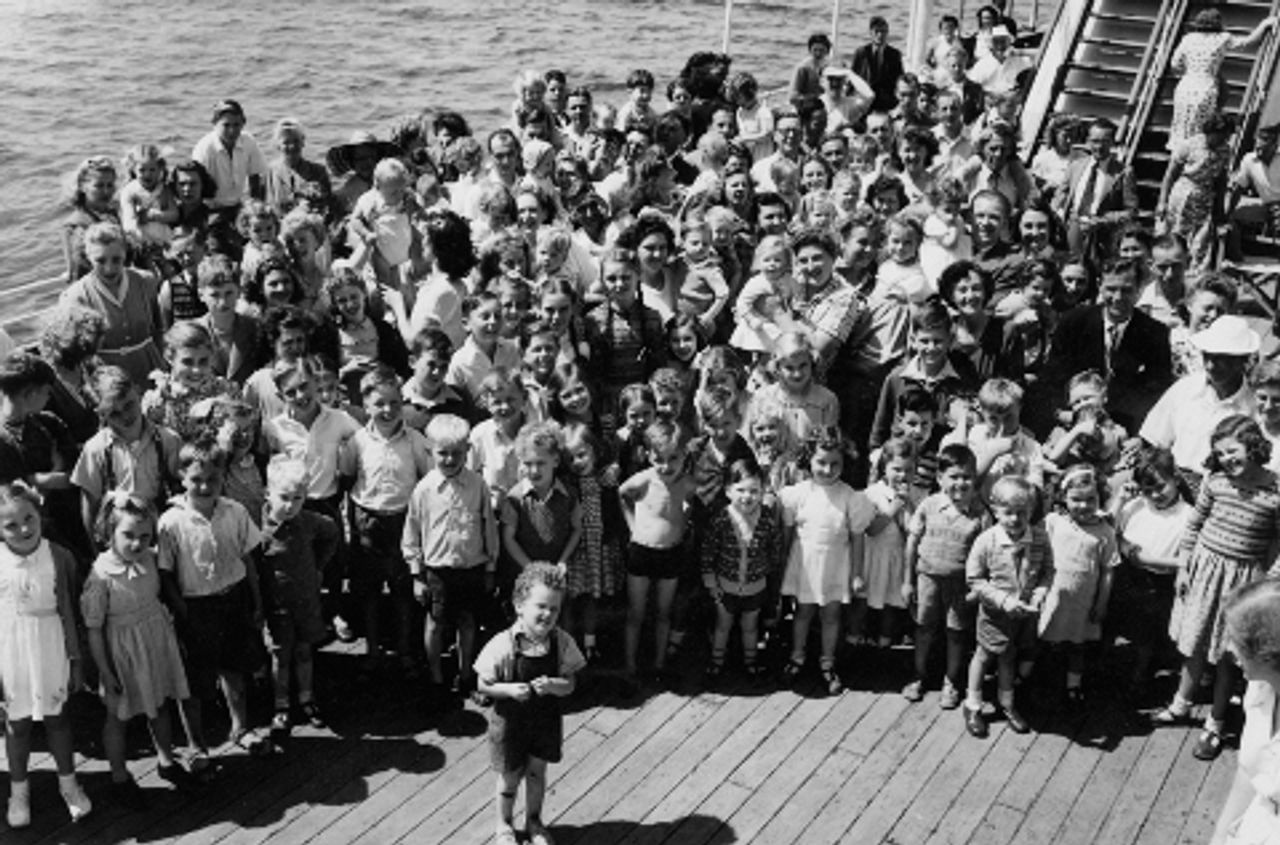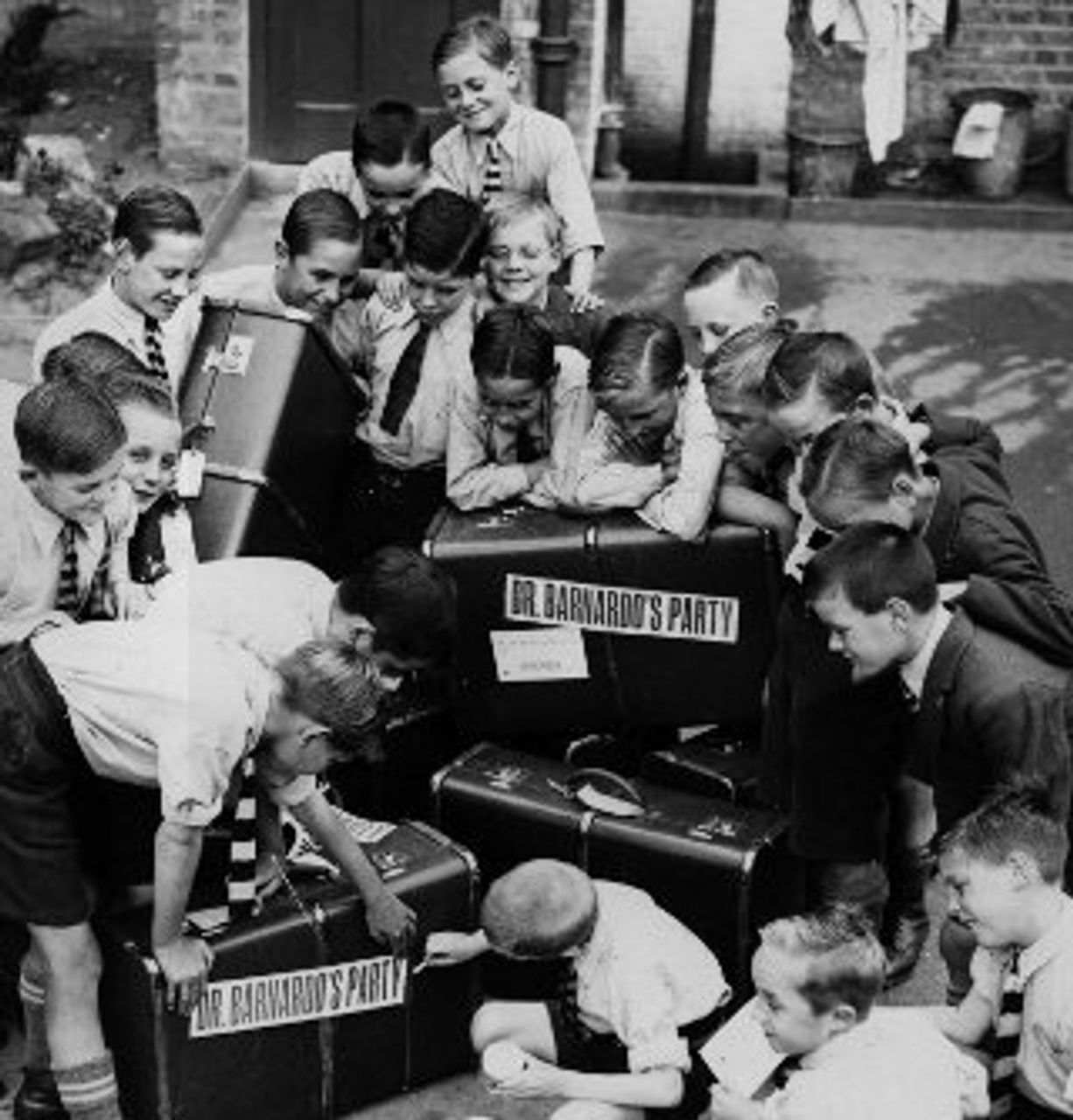Directed by Jim Loach, screenplay by Rona Munro
In his first feature-length film, British director Jim Loach explores fraught terrain—the mass deportation of children from England and their incarceration by government and religious authorities in Australia’s rural outback. The film premiered in Britain last year and began a limited release in Australian cinemas last month.
Based on a 1996 book, Empty Cradles, by English social worker Margaret Humphreys (played by Emily Watson), the film traces the fight she led on behalf of thousands of child-deportees whose lives were irreparably scarred by the trauma of separation, exile and frequently brutal imprisonment.
Oranges and Sunshine shifts between two countries whose histories are inextricably linked. The film opens in Nottingham in England’s East Midlands—outside a block of council flats, a police car pulls up and a baby is taken from its mother’s arms by a woman (Margaret Humphreys) from Nottingham social services.
Fast forward to 1986 and Humphreys, a social worker, conducts fortnightly meetings for adults affected by adoption. Outside, she is accosted by an Australian woman who claims she was shipped from Britain as a four-year-old. “There were hundreds of us,” the woman insists. “I’m sorry,” replies Humphreys, “that can’t be right.” Yet a chance encounter days later prompts her to investigate, marking the start of an all-consuming journey.
 Margaret Humphreys (Emily Watson) seaching files
Margaret Humphreys (Emily Watson) seaching filesRona Munro’s screenplay follows Humphreys as she uncovers the facts surrounding the deportation of children from Britain in the decades following World War II. She is blocked repeatedly by the British and Australian governments, and by the prominent charities and religious organisations involved. The film focuses on the relationship of Humphreys with two of the “child migrants”, now in their 40s and living in Australia—Jack (played by Hugo Weaving) and Len (David Wenham)—as each comes to terms with his past.
Loach (the son of veteran filmmaker Ken Loach) and Munro have embraced a subject of great social importance. From the late nineteenth century, an estimated 130,000 children were taken from welfare institutions in England, Scotland, Wales and Northern Ireland and shipped to the farthest reaches of the British Commonwealth. Canada, for instance, received 100,000 child migrants between 1880 and the 1930s. An estimated one million Canadians are descended from these ‘orphans’. The story of Britain’s ‘lost generations’ has never before been told on the big screen.
Watching Oranges and Sunshine is a harrowing experience. The scale of the injustice and cruelty is overwhelming. Children and their parents in Britain were systematically lied to and stripped of their most fundamental legal and social rights. Charities—including Dr Barnados and the Salvation Army—told thousands of children their parents were dead. They were deported against their will and without their parents’ knowledge or consent. Mothers who searched for sons and daughters were led to believe they had found new homes with loving foster-parents and were “better off without them”. Some were told their children were deceased.
While child migrants were also sent to Canada, New Zealand and Rhodesia, the wave of deportees shipped to Australia during the late 1940s and 1950s suffered the harshest treatment. Some 7,000 children between the ages of 3 and 15 were packed off to institutions in the remote outback where they worked as agricultural and domestic slaves. Many suffered extreme physical and sexual abuse. Their treatment eerily echoes the country’s origins as a penal settlement.
 Children arriving in Australia. Photo courtesy Icon Film Distribution
Children arriving in Australia. Photo courtesy Icon Film DistributionThe emotional legacy of child migration lies at the core of Loach’s film, and the performances delivered by Weaving and Wenham are genuinely moving. Weaving’s Jack is a gentle burly giant, whose emotional fragility is rendered with breathtaking authenticity. Len, another child migrant, is truculent and aggressive, with a tightly wound persona that shields him from the past. These characters are portrayed with commitment. Their stories are based on those of actual child migrants, as told to Humphreys and recounted in Empty Cradles.
The central weakness in Loach’s film (and Munro’s screenplay) is its failure to penetrate with sufficient depth the broader social and historical context of the child migrant programs. The viewer unfamiliar with this history is left none the wiser about what caused all this suffering.
Britain’s child migrant scheme met a series of political, geo-strategic and economic objectives on the part of British and Australian imperialism. The export of children would boost Britain’s hold over the Empire (and later the Commonwealth). It would simultaneously defray the costs associated with child welfare. A 1953 report by the British government’s Overseas Migration Board criticised local authorities for not sending enough children, declaring that state wards “might, if they stayed in the United Kingdom eventually become, or continue to become a charge upon the rates.”
In January 1945, the Australian Labor government announced a program to import some 50,000 British child migrants and “white alien children” to meet the need for post-war labour. They would be housed in converted military bases and air force camps, then in hostels. The economic and racial objectives underpinning the program were summed up six years earlier by Redmond Prendiville, the Catholic Archbishop of Perth, in a speech to British children arriving on the SS Strathaird: “At a time when empty cradles are contributing woefully to empty spaces, it is necessary to look for external sources of supply. And if we do not supply from our own stock we are leaving ourselves all the more exposed to the menace of the teeming millions of our neighbouring Asiatic races.”
 Dr Barnado boys. Photo courtesy Icon Film Distribution
Dr Barnado boys. Photo courtesy Icon Film DistributionIn Loach’s film, Humphreys and her husband Merv (Richard Dillane) discuss some of the factors behind Britain’s child migrant scheme, but these never form more than a passive backdrop to the film’s central action. The issues are not worked through artistically, so that despite the film’s undeniable emotional power it suffers from a certain flatness and even clumsiness in parts.
The film tends to mirror Humphreys’ own conclusion that the political issues are secondary. The child migrants’ journey is depicted in largely personal terms, pointing to solutions that are similarly focused inward.
At times the role of state is air-brushed. Authorities in Nottingham are shown rushing forward with offers of funding for child reunion. Humphreys’ own book suggests a somewhat different picture. As hundreds of letters poured in from child migrants in Australia, and with the Observer newspaper having just published a major exposé of the scheme (“Lost Children of the Empire,” whose appearance in July 1987 Humphreys describes as a “bombshell”), the politicians stepped in with just one aim in mind: damage-control.
“We’re not here for recriminations,” Humphreys tells an all-party meeting of MPs, churchmen and charities in Britain, “we are providing an opportunity for you to redress some of the damage for which you were responsible.”
When it comes to the government’s actions, they are presented as the result of misguided paternalism, with responsibility for the most sadistic aspects of child abuse sheeted home to the Catholic Church (an easy, if deserving, target). In reality, the child migrant scheme was sponsored by the British and Australian governments (backed by legislation) and repeatedly defended by ministers of the crown against critics as far back as the late 1940s.
It is worth recalling that in 1987 the BBC at first refused to televise, then censored, Penny Chapman’s drama mini-series The Leaving of Liverpool. Under pressure from the Thatcher government, BBC management edited part of the series to remove footage showing the involvement of British charities, including Dr Barnados and the Fairbridge Society, in child deportation.
The closing frames of Loach’s film are unforgettable. All at once we are made to see the experiences depicted in the film, and of child migration, anew, through younger and more innocent eyes. The soundtrack is silent. The film recounts that a formal apology was delivered to the “forgotten children” by the Australian and British governments in 2009 and 2010. But these apologies deliberately concealed the political responsibility for the deportation and incarceration of thousands of children.
In his speech delivered at Parliament House in November 2009, then Australian Prime Minister Kevin Rudd told child migrants, “the laws of our nation failed you.” But the laws of the nation worked then, as now, just as intended: upholding the economic and political power of the ruling class and reserving its greatest repression for the most oppressed and vulnerable sections of the population.
While Oranges and Sunshine leaves a good many stones unturned, it brings to life a long-suppressed chapter in British and Australian history. It is shameful that the film is screening in so few Australian cinemas.
